10 Farm to School Organizations You Should Know
Farm to school is here to stay!
Join our corps! Applications for 2026-2027 are now open. Apply by March 30.
Farm to school is here to stay!
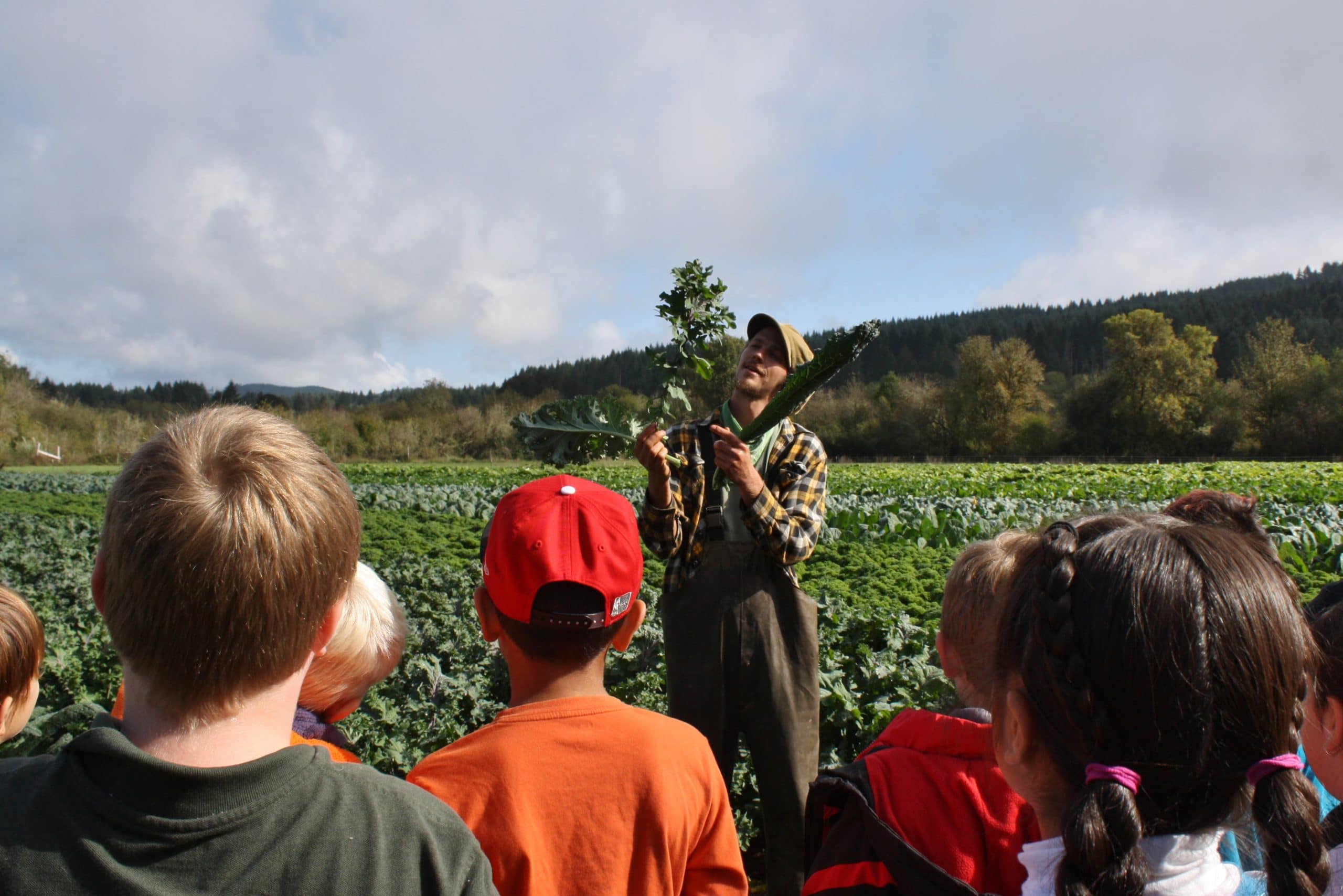
National Farm to School Month began in 2010, when Congress designated a month-long celebration of healthy, local food in schools and its benefits for kids and communities. Recognized each October, National Farm to School Month celebrates kids’ connections to local food across the country.
This wouldn’t have been possible without the National Farm to School Network, the organization that advocated to Congress for the creation of National Farm to School Month in the first place. First launched in 2007, the National Farm to School Network provides information, advocacy, and networking for communities working to bring local food education and resources to schools. With over 20,000 members across the country connected in more than 42,000 schools, the National Farm to School Network is the leader in the farm to school movement.
As National Farm to School Month comes to a close, we want to recognize a few other outstanding organizations promoting farm to school programs in the United States. Whether through education, advocacy, funding, or building connections, here are 10 nonprofit organizations working to bring local food and agriculture education to school systems across the country.
Beyond checking out these organizations, visit our map to learn about school food policy in your state. Finally, to learn more about farm to school organizations in your neighborhood, check out this map of farm to school partners from the National Farm to School Network.
 Dreaming Out Loud
Dreaming Out Loud Founded in 2008, Dreaming Out Loud is a nonprofit based in Washington, D.C., with the goal of creating healthy food systems for schools and communities. By building community markets, promoting urban agriculture, and fostering entrepreneurship, they’ve reached nearly 40,000 people and have distributed nearly 300,000 pounds of produce to communities in D.C. They also do amazing work advocating for food public policy through collaborations with Congress and other political stakeholders.
The Center for Ecoliteracy is a nonprofit in California founded in 1995 with the goal of educating kids on the importance of ecology and food. Through the California Food for California Kids initiative, the Center for Ecoliteracy collaborates with public schools across the state to teach kids the principles of sustainable living and where food originates. For schools connected in this network, the Center for Ecoliteracy introduces California-grown meals every Thursday—totaling more than 334 million meals a year!
 Gallatin Valley Farm to School
Gallatin Valley Farm to School Gallatin Valley Farm to School was founded in 2007 by a group of concerned parents and community members in Bozeman, Montana. With the goal of fostering healthy kids in the Gallatin Valley area, the nonprofit has collaborated and built relationships with other organizations and local producers to introduce kids to locally grown food. The Bozone Ozone Bus is a school bus turned mobile greenhouse owned by Gallatin Valley Farm to School. The bus travels to schools and community events to teach students about science, nutrition, agriculture, and land stewardship.
The Hawaiʻi Farm to School Hui was established in 2010 to strengthen the farm to school movement across the islands’ school networks. In 2017, the nonprofit became a program of the Hawaiʻi Public Health Institute to further their goals of education, access to food and local agriculture, and collective impact. One initiative of the Hawaiʻi Farm to School Hui is the creation of School Peace Gardens, garden spaces for Hawaiʻi public schools that provide an area for students to garden and reflect on values of cooperation, critical thinking, mutual respect, compassion, and empathy.
 Michigan State University Center for Regional Food Systems
Michigan State University Center for Regional Food SystemsThe vision of Michigan State University’s Center for Regional Food Systems is to foster a thriving food system for Michigan, the country, and the planet. Through food systems rooted in local regions and centered on food that is healthy, green, fair, and affordable, the Center for Regional Food Systems features programs like Michigan Farm to Institution and Michigan Farm to School. The center provides resources and technical assistance to help farm to school practitioners purchase more local foods, create school gardens, and teach about agriculture, with farmer visits and field trips for students across the state.
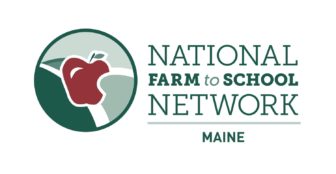 School Network
School NetworkThe Maine Farm & Sea to School Network organized in 2008 with the mission to build an infrastructure at the school and community level to support farm to school programs throughout Maine. In partnering and collaborating with other food organizations, the Maine Farm to School Network has a presence in nearly 80% of school districts in the state. The network also leads the Harvest of the Month program, which highlights a different local food each month to provide students healthy produce while also supporting Maine’s farmers and producers.
Founded in 1997, Apple Seeds, Inc. creates programs designed to educate young students about healthy food while also increasing students’ access to those healthy foods. Apple Seeds focuses on garden-based, hands-on learning where kids can directly experience the growth of food. Through the “Teaching Farm” and “Teaching Kitchen,” Apple Seeds utilizes two acres of land in Fayetteville, Arkansas, to teach kids about growing, preparing, and eating locally grown food. Since its creation, kids with the Teaching Farm have grown over 5,000 pounds of produce!
The New York Agriculture in the Classroom program was established in 1985 to promote agricultural literacy in New York State. The program partners with Cornell University, the NYS Department of Agriculture and Markets, the NYS Education Department, Cornell Cooperative Extension, and the New York Farm Bureau to create workshops, farm tours, and agricultural literacy education to students across the state. Ag in the Classroom also partners with the New York State Beef Council each year for a contest where students compete to develop a marketing and nutrition plan for a beef-centric product or recipe.
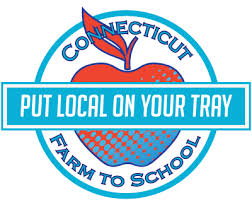 University of Connecticut: Put Local on Your Tray
University of Connecticut: Put Local on Your TrayThe Put Local on Your Tray extension with the University of Connecticut builds relationships with organizations to empower school communities to source, serve, and celebrate local food. In tandem with Connecticut Farm to School, the extension partners with organizations like the Connecticut Department of Education, John Merck Fund, FoodCorps, and others to provide healthy, locally grown food to students across the state. The Put Local on Your Tray extension advocates for the use of cycle menus in school cafeterias, which helps give flexibility for procuring local foods and establishes guidelines for healthy food served throughout the year.
Farm to Table New Mexico collaborates with partners across the state to further the movement of bringing locally grown food to communities and schools. The Farm to School initiative provides programs and activities for students to gain hands-on education with gardening and agriculture, as well as exploring career options in farming. Farm to Table also works to further friendly food policy for bringing locally grown, healthy food to schools across the state.
Thanks for reading! Visit foodcorps.org/signup to get stories like these delivered to your inbox.
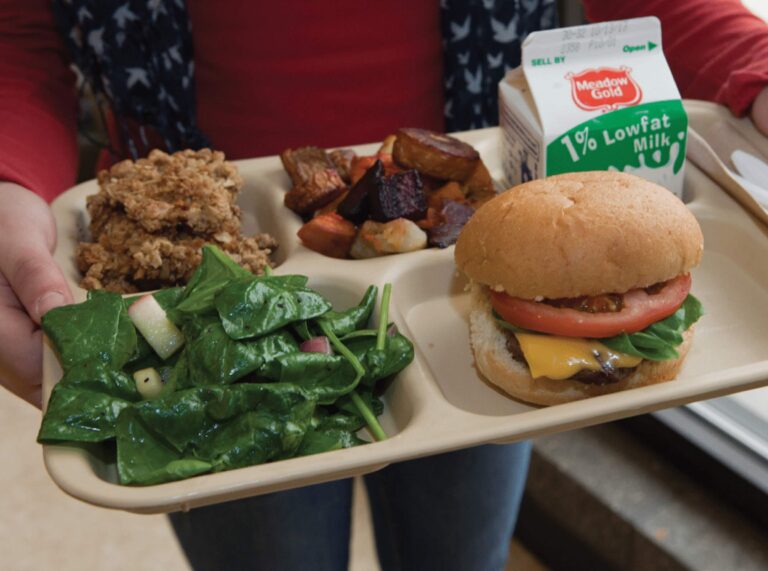
3 Reasons We Need School Meals for All
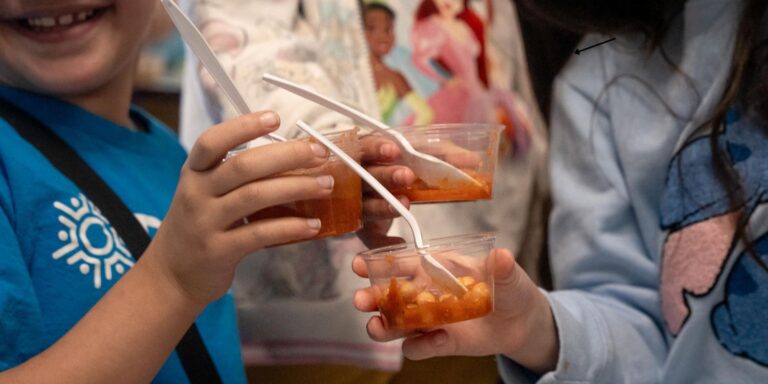
Mindful Tasting: Eating with All 5 Senses
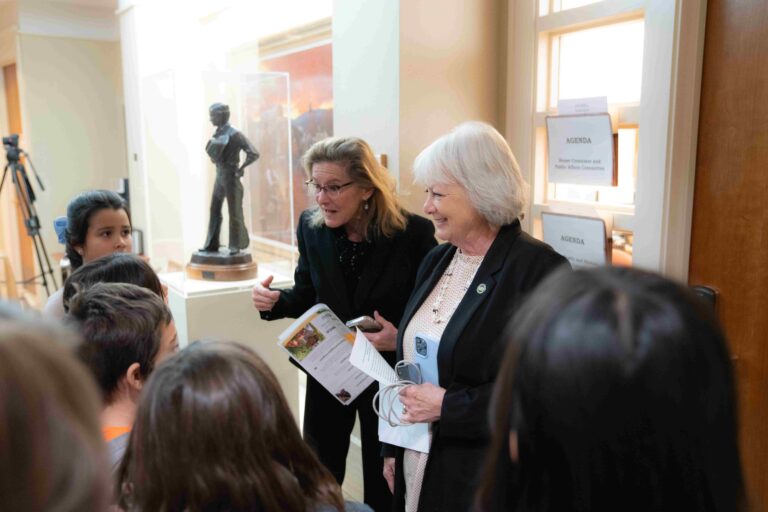
Our 2025 Child Nutrition Policy Year in Review